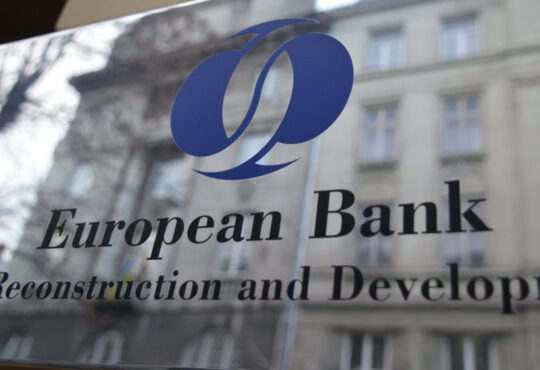
A woman checks her EU Digital Covid certificate on her mobilephone at El Prat airport in Barcelona … [+]
Paulina Velasco
Hitting its one-year mark earlier in August, the US CHIPS and Science Act has already attracted $166 billion in semiconductors and electronics investment, according to the US Government. A major pillar of Washington’s reindustrialization drive, the CHIPS Act is designed to ramp up US competitiveness and supply chain security in critical sectors, namely through its $53 billion in incentives for semiconductor manufacturing and R&D, as well $1.5 billion in public funding to expand 5G and next-gen telecoms networks.
The Biden Administration’s aggressive industrial policy has sparked a similar reawakening on the other side of the Atlantic, with the EU moving to prop up its green and digital sectors to keep pace. While industrial heavyweights France and Germany have dominated headlines, Spain has an equally crucial role to play in this bloc-wide effort, particularly as the epicenter of consolidation in Europe’s telecoms market.
Madrid’s status could soon be reinforced, with Iberian telco behemoth Telefónica reportedly proposing Vodafone Spain a fiber network partnership. This consolidation could provide the financially faltering Vodafone much-needed relief from the squeeze of the Spanish telecoms market – arguably Europe’s most competitive as a plethora of low-cost brands continue to drive prices down.
Given this situation, Telefónica COO Ángel Vilá has long called for the consolidation of Spain’s fragmented market, an aim sometimes challenged by Brussels regulators on competition grounds. Yet the EU should find compromise solutions that unlock the economic benefits of having European telco champions, while ensuring competition guardrails do not expose the market to unforeseen threats.
Pooling resources to keep pace
As in Spain, the broader European telecoms market is highly fragmented, with over 100 mobile network operators struggling to keep pace with competitors in the US and China. Compared to the US – whose three main mobile operators have rolled out 5G networks much faster than in the EU – much smaller European countries have up to four operators, many of which face mounting debt, shrinking profits and intense pressure to invest in next-generation networks despite weak returns.
Telecoms market analysts have posited that reducing the number of operators in European countries via consolidation would make the sector more financially robust and resource-efficient, thus unlocking higher levels of investment in advanced network technologies that the bloc needs to compete with its international rivals. For this reason, Spain has been using its six-month EU Council presidency to push for accelerated market consolidation, a policy agenda shared by the EU.
Spanish Telecommunications Secretary María González Veracruz clarified Madrid’s goal of driving forward the “regulatory changes and necessary decisions” that the bloc’s leading operators need “to compete in the global market,” adding that Spain would support consolidation in “every way it can,” in an April statement. Furthermore, digital and competition Commissioner Margrethe Vestager has lamented how “excessive competition” has slashed prices and investment returns for European telcos, while calling for “continental level” consolidation.
Reconciling competition and consolidation
While the continent’s largest telcos – including Vodafone Group and Orange – have already bought up smaller players in their local markets, they have traditionally shied away from merging with each other. However, this could soon change.
General view of Virgin Mobile, Vodafone, T Mobile, Orange and O2 phone company logos on a phone shop … [+]
The proposed merger inked in late July between MasMóvil and Orange, two of the biggest telcos operating in Spain, represents an enormous consolidation leap. This €18.6 agreement would create a full-fledged Spanish juggernaut, with industry analysts notably speculating that it could lay the foundation for similar developments across the continent. Yet the merger has already run into regulatory trouble, with the European Commission expressing concerns that this consolidation would reduce competition in Spain and increase consumer prices.
With the Commission’s investigation ongoing, Orange is taking action to alleviate Brussels’s fears ahead of the EU executive’s final decision this autumn. In late July, the French telco opened talks with the Commission concerning the transfer of remedies, and more specifically, assets in its retail business – the object of the Commission’s fair competition reservations – to secure the greenlight for its MasMóvil merger. Crucially, this compromise would help an ailing market consolidate while preventing Orange from excessively corning the market.
Beware unintended consequences
However, in its bid to protect consumers and competition, regulators should closely consider which firms could snap up Orange’s assets. For example, Digi Spain, a Romanian telco that has experienced dizzying growth in Spain in recent years, is already waiting in the shadows.
As part of its growth plan, this low cost operator has its sights set on snapping assets from Orange – a concerning development given Digi’s numerous issues that could undermine the investment climate and consolidation of Spain’s telecoms market. Spanish business newspaper Cinco Días has recently cautioned that Digi’s aggressive “price wars,” would not only come from a desire to compete in the market, but also to divert attention from several dark clouds hiding behind Digi’s performance.
For example, Digi’s auditor, KPMG, has also exposed a series of organizational red flags. In addition to questionable accounting documentation, KPMG’s 2022 financial report highlights Digi’s overly-centralized corporate governance structure as well as the “various judicial and regulatory processes” facing the company, including a corruption allegation in Romania. Crucially, these internal flaws are cultivating mistrust from investors at a time when network investment is sorely needed, making Digi’s potential acquisition of Orange assets a risk that the Spanish telecoms market must be protected from.
Continent at a crossroads
Regardless of the outcome, the Orange-MasMóvil merger will likely be a watershed moment for EU telco consolidation, setting the direction of travel for the coming years. With the bloc requiring a significant investment boost in 5G networks and other next-generation technologies to accelerate its twin digital-green transition, the EU should follow the lead of Spain and other strong telco advocates by ensuring its policies help unlock the market’s potential.
Given its benefits, as well as the avenues for mitigating possible impacts on fair competition, the Commission’s backing of consolidation can play a key role in preventing the continent from falling irreversibly behind the US and other global tech and industrial competitors.






